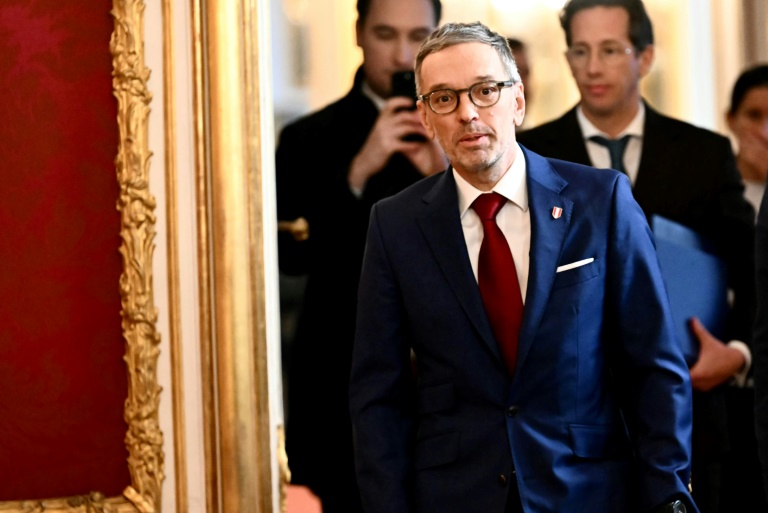Austria’s far-right party, which has been tasked for the first time with trying to form the next government, has been part of ruling coalitions several times before in the Alpine EU member.
But each time, the coalition involving the Freedom Party (FPOe) — founded in the 1950s by former Nazis — has collapsed.
– First steps with the left –
In 1983, the FPOe broke a glass ceiling when the left-wing Social Democrats (SPOe) invited it into a coalition.
The FPOe had gained less than five percent in the national election, but its support was enough to give the SPOe, which won 48 percent, a parliamentary majority, and itself some credibility.
The FPOe held the vice-chancellorship, trade, justice and defence portfolios, but trouble erupted in 1985 when one of its ministers went to the airport to welcome a war criminal freed after serving time in prison in Italy.
Things became worse a year later, when the party chose a radical, Joerg Haider, as president. The SPOe ended the coalition, calling early parliamentary elections.
The FPOe actually managed to double its result in that poll, but it was more than 13 years before it would return to power.
– European shock –
In 1999, the FPOe finished second in parliamentary elections, scoring almost 27 percent, behind the SPOe.
But after the SPOe failed to form a majority coalition, the third-placed conservative People’s Party (OeVP) managed to convince the FPOe to let it take the chancellery in exchange for key portfolios.
The FPOe’s return to power in 2000 provoked months of unprecedented EU diplomatic sanctions and mass protests at home.
In 2005, Haider founded a new, less radical, party, while the FPOe was exiled into opposition under the leadership of Heinz-Christian Strache, a former neo-Nazi.
– Corruption scandal –
More than a decade later in 2017, the FPOe managed to return to power in a coalition under charismatic OeVP leader Sebastian Kurz.
The government passed a raft of anti-immigration measures — many of which were overturned by the country’s Supreme Court.
The then-foreign minister Karin Kneissl also caused outrage by inviting Russian President Vladimir Putin to her wedding, just months after the UK accused Moscow of poisoning former spy Sergei Skripal and his daughter Yulia in Britain.
A spectacular corruption scandal, dubbed Ibizagate, brought down that government after one and a half years in office.
Video footage secretly filmed on the Spanish resort island of Ibiza showed FPOe leader and vice chancellor Strache offering public contracts to a woman posing as a Russian oligarch’s niece, in exchange for campaign help.
Strache resigned from his posts and the FPOe’s sharp-tongued ideologue, Herbert Kickl, took over the party in 2021.
Tapping into voter anxieties over migration, the war in Ukraine, the Covid pandemic and the state of the economy, the FPOe’s popularity surged in line with other far-right parties across Europe.
In September, the FPOe topped national elections for the first time, with almost 29 percent of the vote.
Conservative-led talks to form a government without the FPOe failed over the weekend, clearing the way for Kickl to lead coalition negotiations with the OeVP.
bg/jza/bc/yad
